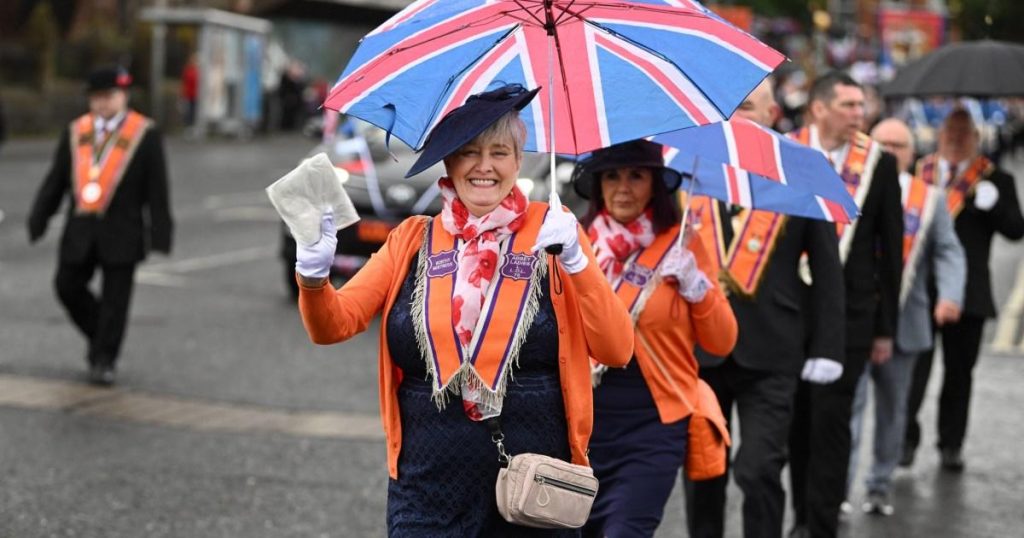The Orange Marches, a vibrant yet contentious annual Protestant tradition in Northern Ireland, commemorate the victory of Protestant King William of Orange over Catholic King James II at the Battle of the Boyne in 1690. Held each year on July 12th, the celebrations commence the previous evening with bonfires and fireworks, setting the stage for a day of parades. Thousands of members of the Orange Order, adorned in bowler hats, white gloves, and orange collarettes, march through designated areas accompanied by the rhythmic pulse of drums and bagpipes. While the marches are a significant cultural expression for Protestants, their historical and religious connotations often lead to tension with the Catholic community.
The historical context of the marches, celebrating a Protestant triumph over Catholicism, contributes to their controversial nature. For many Catholics, the parades are perceived as provocative displays of triumphalism and disrespect. This perception has occasionally resulted in clashes and riots, prompting the Orange Order to attempt a rebranding of the marches in recent years. This delicate balancing act seeks to preserve the tradition while mitigating its potentially inflammatory aspects. The very nature of the celebration, rooted in a historical conflict, presents an ongoing challenge for community relations in Northern Ireland.
Adding a layer of intrigue to the narrative are recently released government papers revealing Queen Elizabeth II’s private opinion on the marches. During a visit to Northern Ireland in 2000, the Queen reportedly referred to the Orange Marches as “silly business” and the “silly marching season,” remarks that shed light on her personal perspective. While the Orange Order downplayed the comments as a casual remark without deeper meaning, the revelation nonetheless adds a royal dimension to the ongoing discussion surrounding the marches. The Queen’s candid assessment, however informal, highlights the complex and often sensitive nature of the tradition.
The enduring interest in the Orange Marches extends beyond historical and political discourse, as evidenced by a recent viral TikTok video. An American Taylor Swift fan, visiting Ireland for a concert, inadvertently stumbled upon an Orange parade after her GPS led her astray. Her initial impression was one of fascination with an unfamiliar cultural display, unaware of the historical and political context. The video, which garnered over 1.3 million views, sparked a conversation online about the marches and their significance, demonstrating their ability to capture attention even beyond the immediate Northern Irish context. This incident underscores the power of social media to amplify seemingly isolated encounters, transforming them into global conversations about culture, history, and politics.
The incident involving the American tourist inadvertently attending the Orange March highlights the potential for cultural misunderstanding and the importance of context. Her initial reaction, viewing the parade as simply a colorful cultural event, underscores the disconnect that can occur when encountering unfamiliar traditions without prior knowledge of their historical and political weight. The subsequent online discussion surrounding the video further amplified this point, emphasizing the need for nuanced understanding when engaging with culturally sensitive events.
The Orange Marches remain a complex and evolving tradition in Northern Ireland. Balancing the right to cultural expression with the need for sensitivity and respect for all communities continues to be a challenge. As the marches continue to generate discussion and debate, it is essential to consider their multifaceted nature and the diverse perspectives they evoke, both within Northern Ireland and beyond. The ongoing efforts to navigate the historical baggage associated with the marches underscore the complexities of reconciling past divisions while fostering a more inclusive future.


